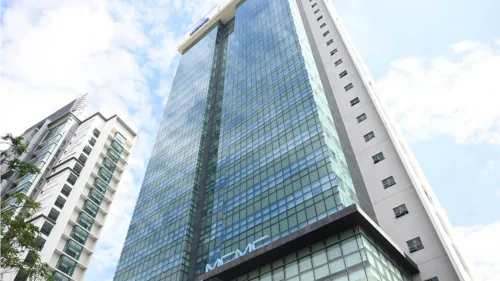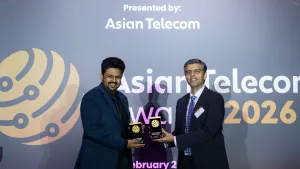5G, AI, and satellite tech to transform APAC telecom by 2030
By decade's end, 45% of APAC users are expected to be on 5G.
The Asia Pacific telecom sector is set for major changes in the next decade, driven by 5G, AI, satellite innovations, and the mobile operator API economy. Julian Gorman, Head of Asia Pacific at GSMA shared insights from the organization's latest report on the region’s mobile industry trends.
Gorman emphasized that while 4G will continue to dominate in the region through 2030, the adoption of 5G is accelerating rapidly. "4G will last till the end of this decade," Gorman affirmed. However, he noted that 5G will bring more functionality and use cases, which will be critical to the region's economic and technological advancement.
He further elaborated on the uneven pace of 5G adoption across the region. "Asia Pacific is really a tale of extremes. You have the most advanced markets, like South Korea, which this year will pass 60% 5G adoption. But then a number of the big countries with populations in Asia Pacific are yet to really enter the 5G era."
Despite this disparity, Gorman remains optimistic, citing India as a key driver of 5G growth in the region. "India is adding about 10 million subscribers a month to their 5G base, which will make them one of the largest 5G countries in the world," he noted. According to GSMA’s projections, by the end of the decade, 45% of the user base in APAC is expected to be on 5G, with advanced markets nearing 90% penetration.
Beyond the expansion of 5G, Gorman identified three trends reshaping the telecom industry in APAC. The first is the emergence of 5G Advanced, a progression of 5G technology that will introduce new functionalities and potentially unlock a broader range of applications.
He also mentioned the increasing focus on generative AI, advancement of satellite and non-terrestrial networks, and the burgeoning mobile operator API economy as trends reshaping the industry.
"Mobile operators across the world, as part of GSMA's Open Gateway program, [are] making available APIs to the innovators and to the ecosystem to allow a new era of innovation," Gorman said. These APIs, by exposing mobile network capabilities to developers and businesses, are expected to drive innovation across various sectors, including fintech, healthcare, and on-demand networks, thus benefiting both consumers and the broader economy.
As mobile commerce continues to surge across the APAC region, Gorman acknowledged the accompanying rise in online fraud and the growing need to build consumer trust. The mobile industry, he said, is actively addressing these challenges through enhanced data solutions. "The mobile phone is enabling the world's population to access commerce and online services, financial services, and as more people come on board... commerce and fintech industries are looking for data solutions to help them manage digital identity fraud and risk," he noted.










